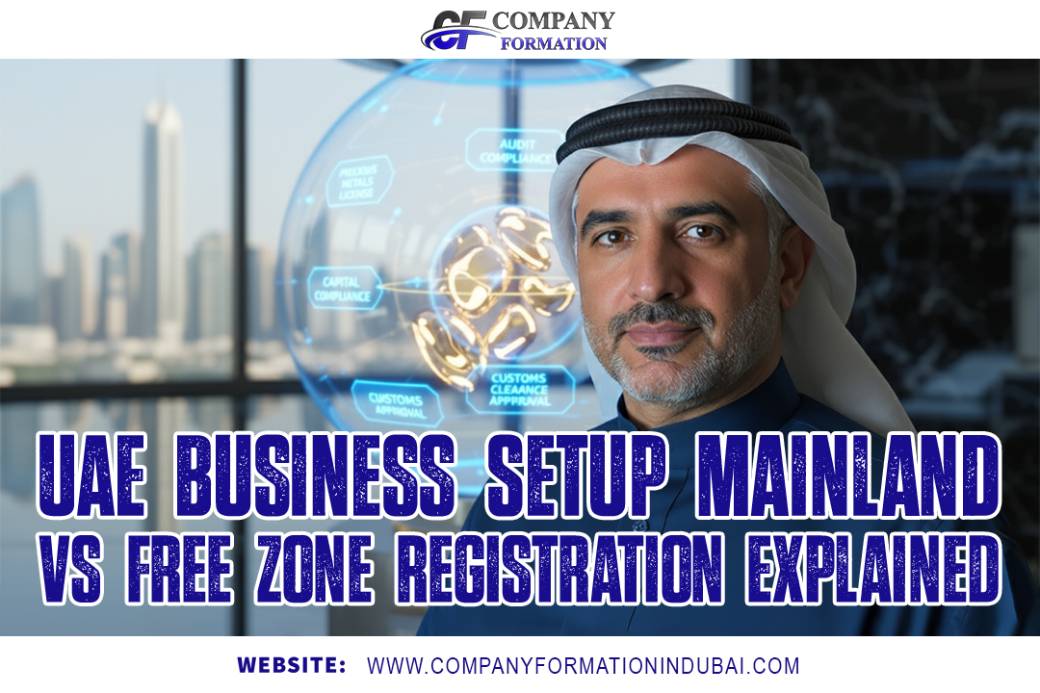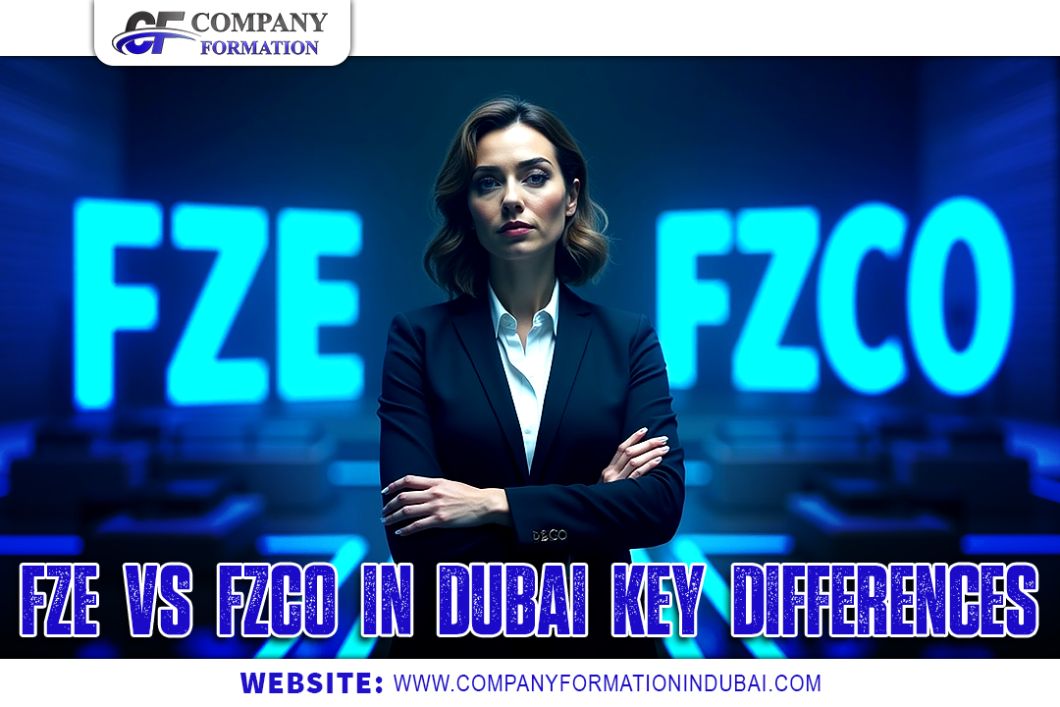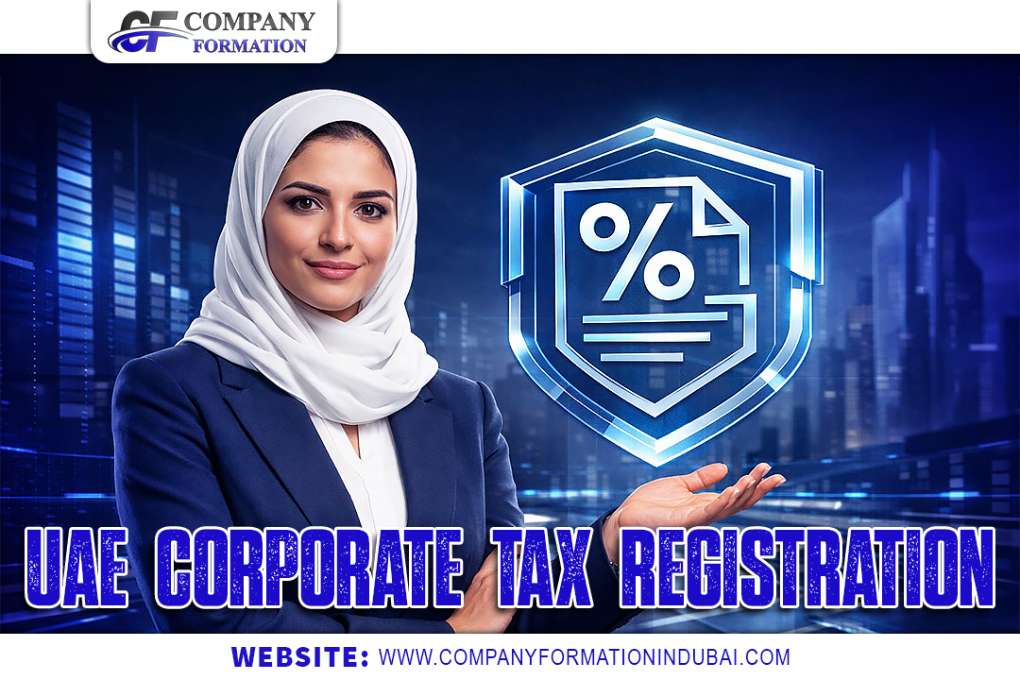Mainland vs Freezone Visa in UAE | Which Is Right for Your Business or Residency?
Choosing between a Mainland visa and a Freezone visa in the UAE depends on your business goals and residency needs. A Mainland visa offers flexibility to operate across all Emirates, access to diverse industries, and no restrictions on local market trading, ideal for businesses targeting UAE clients. A Freezone visa provides 100% foreign ownership, tax exemptions, and simpler setup processes, perfect for international trade or startups. Costs for a Mainland visa start at around AED 30,000, while Freezone visas begin at AED 27,000, varying by zone. In 2025, recent reforms allow 100% foreign ownership in many Mainland sectors, making it more attractive. Read on for a detailed comparison, application steps, and tips to choose the right visa for you.
Starting a business or relocating to the UAE is exciting, but picking the right visa can feel like navigating a maze. As someone who’s helped friends and clients set up companies in Dubai, I’ve seen how crucial it is to understand the difference between Mainland and Freezone visa options. Whether you’re an entrepreneur dreaming of launching a startup, an employee seeking residency, or an investor eyeing the Golden Visa UAE, this choice shapes your success. In this guide, I’ll break down everything you need to know about Mainland vs Freezone visas, using clear examples, updated 2025 insights, and practical steps to make your decision easier.
What Is a Mainland Visa in the UAE?
A Mainland visa is issued to individuals or businesses registered under the UAE’s Department of Economic Development (DED), allowing them to operate anywhere in the UAE without geographical restrictions. It’s perfect for those targeting the local market, bidding for government contracts, or seeking flexibility across industries like retail, healthcare, or hospitality. For example, a friend who opened a café in Dubai’s bustling Deira area chose a Mainland visa to serve local customers and expand to Abu Dhabi seamlessly.
Mainland companies operate under UAE federal laws, and recent 2025 reforms allow 100% foreign ownership in most sectors, reducing the need for a local service agent (LSA) in many cases. This visa type supports UAE residency, family sponsorship, and access to services like bank account opening in Dubai.
What Is a Freezone Visa in the UAE?
A Freezone visa is tied to companies or individuals operating in one of the UAE’s 45+ Freezones, such as DMCC or JAFZA. These special economic zones offer tax exemptions, 100% foreign ownership, and streamlined processes, making them ideal for international trade or startups. For instance, a tech entrepreneur I know set up in Dubai Multi Commodities Centre (DMCC) to export software globally, enjoying tax-free benefits.
Freezone visas are issued by specific Freezone authorities, not the DED, and are best for businesses focusing on international markets. They also include residency privileges, allowing holders to access Emirates ID, healthcare, and visa sponsorship for dependents.
Key Differences Between Mainland and Freezone Visas
Understanding the difference between Mainland and Freezone visa options is key to making an informed choice. Here’s a detailed comparison addressing common user queries like “What’s the difference between a Freezone and Mainland visa in the UAE?” and “Which is better for my business?”
Business Ownership
- Mainland Visa: Historically required a local service agent (LSA) owning 51% of the business in some sectors. However, 2025 updates allow 100% foreign ownership in most industries, making Mainland setups more appealing for investors. For example, a retail business owner can now fully own their company without an LSA in Dubai.
- Freezone Visa: Offers 100% foreign ownership without needing an LSA, a major draw for foreign investors. This was a game-changer for a colleague who launched a logistics firm in Jebel Ali Free Zone (JAFZA), keeping full control of profits.
Market Reach and Operational Flexibility
- Mainland Visa: Provides unrestricted access to the UAE local market, allowing businesses to trade across all Emirates and bid for government contracts. A Mainland company can open branches in multiple locations, like a consultancy firm I worked with that expanded from Dubai to Sharjah.
- Freezone Visa: Limited to Freezone activities and international trade. To trade in the UAE local market, Freezone companies need a local distributor, which can add costs. This restriction frustrated a friend whose Freezone e-commerce business needed a Mainland partner to sell locally.
Business Activities
- Mainland Visa: Offers flexibility to engage in a wide range of business activities, from retail to consulting, regulated by the DED. You can choose multiple activities under one license, ideal for diverse operations.
- Freezone Visa: Restricted to specific activities permitted by the Freezone authority. For example, DMCC focuses on commodities and tech, so you must align your business with the zone’s offerings.
Visa Quotas and Office Requirements
- Mainland Visa: Visa quotas depend on office size (typically 9 sq.m per employee). A larger office means more visas, which suited a construction firm I advised that needed 20+ employee visas. A physical office space is mandatory, increasing setup costs.
- Freezone Visa: Quotas are tied to office type (e.g., flexi-desk, virtual office), typically allowing 1-6 visas. This makes Freezones cost-effective for startups needing fewer visas, like a small design agency using a shared desk in RAK Freezone.
Cost of Mainland vs Freezone Visa in 2025
- Mainland Visa: Costs start at AED 30,000, including licensing, office rent, and potential LSA fees (if required). Additional costs include medical tests (AED 1165), Emirates ID, and health insurance (AED 1100 for basic coverage). A detailed 2025 breakdown shows:
- Entry Permit: AED 1140
- Visa Fee: AED 552
- Other Costs: Vary by office size and business type.
- Freezone Visa: Starts at AED 27,000, varying by Freezone (e.g., DMCC vs JAFZA). Costs are lower due to flexible office options and no LSA fees. For instance, a flexi-desk in a Freezone can save thousands compared to Mainland office rent.
Visa Validity and Renewal
- Mainland Visa: Valid for 2 years for employment visas, 3 years for investor visas, with options for 5 or 10-year visas based on investment size. Renewals are straightforward via MOHRE or GDRFA.
- Freezone Visa: Typically valid for 2-10 years, depending on the Freezone. Renewals are managed by Freezone authorities, often simpler but zone-specific.
Application Process
The visa application process differs significantly, as outlined below in dedicated sections.
Benefits of a Mainland Visa
A Mainland visa offers flexibility and access that make it ideal for many businesses and residents. Here are the key advantages:
- Unrestricted Market Access: Trade freely across the UAE, from Dubai to Fujairah, and bid for government contracts.
- Diverse Business Activities: Engage in multiple sectors, like hospitality or education, under one business license.
- Hiring Flexibility: Sponsor employees based on office size, with no strict quotas. A Mainland company I consulted hired 15 staff by leasing a larger office.
- Family Sponsorship: Sponsor spouses and children (minimum salary AED 4000) or parents (AED 20,000), enhancing family-oriented living.
- Residency Privileges: Access healthcare, bank account opening in Dubai, and long-term property rentals.
- 2025 Ownership Reforms: 100% foreign ownership in most sectors reduces reliance on a local service agent.
Benefits of a Freezone Visa
A Freezone visa is tailored for international businesses and cost-conscious startups. Key benefits include:
- 100% Foreign Ownership: Full control without an LSA, as seen with a tech startup I advised in DMCC.
- Tax Exemptions: No corporate or personal taxes, with a corporate tax holiday often renewable for decades.
- Cost-Effective Setup: Options like flexi-desks or virtual offices reduce costs, ideal for small businesses.
- Streamlined Processes: Faster setup and visa processing (1-2 weeks) via Freezone authorities.
- Global Trade Focus: Perfect for international trade, with no customs duties on imports/exports.
- Privacy: Owner and shareholder details remain confidential, a perk for privacy-conscious investors.
Step-by-Step Guide to Applying for a Mainland Visa
Applying for a Mainland visa involves several steps, regulated by the DED and GDRFA. Here’s how to do it, based on my experience helping a friend set up a retail business:
- Choose Business Activity and Structure: Select your business activities (e.g., retail, consulting) and legal structure (e.g., LLC).
- Get DED Approval: Obtain initial approval from the Department of Economic Development for your trade license.
- Select a Trade Name: Follow UAE naming conventions (avoid religious or offensive terms).
- Secure Office Space: Rent a physical office space (size determines visa quotas).
- Sign Memorandum of Association: If required, involve a local service agent or partners.
- Submit Documents: Provide passport copies, photos, and attested certificates to the DED.
- Complete Medical Tests: Undergo medical fitness tests (HIV blood test, chest X-ray) and biometrics.
- Obtain Emirates ID: Apply via the Federal Authority for Identity, Citizenship, Customs and Port Security.
- Visa Stamping: Finalize through GDRFA for residency status.
Processing Time: 2-4 weeks, depending on DED approvals and office setup.
Step-by-Step Guide to Applying for a Freezone Visa
The Freezone visa process is simpler, as I learned when guiding a colleague through a DMCC setup:
- Choose a Freezone: Select a zone like DMCC or JAFZA based on your business activities.
- Register with E-Channel: Use the UAE’s e-channel services for transparent registration.
- Obtain Entry Permit: Get a 60-day temporary permit to enter the UAE.
- Complete Medical Tests: Pass medical fitness tests and biometrics.
- Apply for Emirates ID: Submit documents to the Freezone authority.
- Visa Stamping: Submit your passport for final visa stamping.
- Collect Documents: Receive your Emirates ID and visa.
Processing Time: 1-2 weeks, faster than Mainland due to streamlined Freezone processes.
Mainland vs Freezone Freelance Visa: What’s Different?
Freelancers face unique considerations when choosing between Mainland and Freezone freelance visas. Here’s how they compare, addressing the query “What’s the difference between Mainland and Freezone freelance visa?”:
- Mainland Freelance Visa:
- Benefits: Work with clients across the UAE, including local market businesses. Offers flexibility for consultants or creatives serving diverse clients.
- Challenges: Higher setup costs (e.g., office rent) and complex MOHRE regulations.
- Example: A graphic designer I know chose a Mainland freelance visa to work with Dubai and Abu Dhabi clients directly.
- Freezone Freelance Visa:
- Benefits: Simpler application, tax exemptions, and lower costs (e.g., flexi-desk options). Ideal for remote workers or international clients.
- Challenges: Restricted to Freezone activities and international markets unless partnered with a local distributor.
- Example: A freelance coder in JAFZA saved on setup costs but needed a distributor to sell locally.
Content Gaps Addressed: 2025 Updates and Case Studies
To outperform competitors, let’s address key gaps with updated insights and real-world examples:
- 2025 Ownership Reforms: Recent laws allow 100% foreign ownership in most Mainland sectors, reducing LSA dependency. This wasn’t fully covered by competitors.
- Specific Freezone Costs: For example, DMCC visa fees range from AED 25,000-30,000, while RAK Freezone starts at AED 20,000, offering budget options.
- Case Study: A Dubai-based logistics startup chose a Freezone visa in JAFZA for tax exemptions but switched to a Mainland visa after a year to access local clients, highlighting the trade-off between cost and market reach.
- Visa Renewal Details: Mainland renewals via MOHRE cost AED 1000-2000, while Freezone renewals vary (e.g., AED 1500 in DMCC). Competitors omitted these specifics.
FAQs About Mainland and Freezone Visas
Here are answers :
Q1: What is the difference between a Freezone and Mainland visa in the UAE?
A Freezone visa is issued by Freezone authorities, offering 100% foreign ownership and tax exemptions but restricts local market trading. A Mainland visa, regulated by the DED, allows unrestricted UAE market access and diverse business activities.
Q2: Can a Freezone company trade directly in the local UAE market?
No, Freezone companies need a local distributor to trade in the UAE market, unlike Mainland companies, which face no such restrictions.
Q3: Is a physical office mandatory for Freezone companies?
No, Freezones offer flexible options like flexi-desks or virtual offices, while Mainland companies require a physical office space.
Q4: How are visa quotas determined?
Mainland visa quotas depend on office size (9 sq.m per employee), while Freezone quotas are tied to office type, typically 1-6 visas.
Q5: Are there tax implications for Mainland companies?
Mainland companies may face corporate tax (introduced in 2023) and VAT, while Freezones offer tax-free benefits.
Q6: Can Freezone companies participate in government tenders?
Freezone companies have limited access to government contracts, unlike Mainland companies, which can bid freely.
Conclusion: Which Visa Is Best for You?
Choosing between a Mainland visa and a Freezone visa in the UAE boils down to your goals. If you want to tap into the UAE local market, bid for government contracts, or operate across multiple Emirates, a Mainland visa is your best bet. Its flexibility and 2025 foreign ownership reforms make it ideal for businesses like retail or consulting. But if you’re focused on international trade, need tax exemptions, or want a cost-effective setup, a Freezone visa in zones like DMCC or JAFZA is the way to go.
From personal experience, I’ve seen friends thrive with both options. A Mainland visa worked wonders for a café owner serving local customers, while a Freezone visa suited a tech startup exporting globally. Consider your business activities, budget, and market focus. For tailored guidance, UAE PRO services can simplify the process, from business registration in Dubai to visa processing. Ready to take the next step? Start your UAE business setup journey today!








